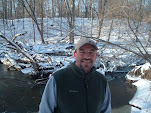"The middle path is the way to wisdom." - RumiSome days, some times, seem darker and more menacing than other days. The hate filling the atmosphere of the present moments is a bit disturbing. I keep searching through the Left and Right rhetorical fog for the wisdom and the soundness of action and decision with regard to the application of experience, knowledge, and good judgment. However, I only hear and see partisan soundbites and outright distortions of truth. Or omitted and edited versions of talking-point opinions by the talking heads of journalists, commentators, movement-leaders, or politicians.
Alas, I suspect I expect too much.
I find it is now very difficult to impossible to walk the middle path, or as I have always believed, the political center. I define that political center as an outlook or specific position that involves accepting or supporting the balance of social equality with social hierarchy. Taking this position makes me oppose political changes which would result in a significant shift of society strongly to either Leftists or Right-wing zealots. Tyranny for citizens by the proposed extremes of the Left or the Right.
These are the times that John Adams wrote about where "In politics the middle way is none at all." Similarly, a German poet once wrote, “In times of extremes, the middle path is deadly.” So why do I want to walk the middle path so badly? Perhaps it helps me to be kind to everyone, to be empathetic, to look at the human condition with compassion in a nonjudgemental way.
However, that middle path has never been protected by the promotion of milquetoast policies everyone already agrees on, it’s protected by taking the time to understand and defend foundational principles such as free speech, open and transparent inquiry, and due process. Now, when forced to defend those foundational principles, we are asked (or shouted down) to shut-up and tow a radical left or right line.
When did having opposing opinions become unacceptable? I am beginning to understand now why people find caves in Idaho to live in. Or become Anarchists.
I used to believe what Rumi said but these days it seems like the German poet and John Adams understood it with what I find uncomfortable correctness.









